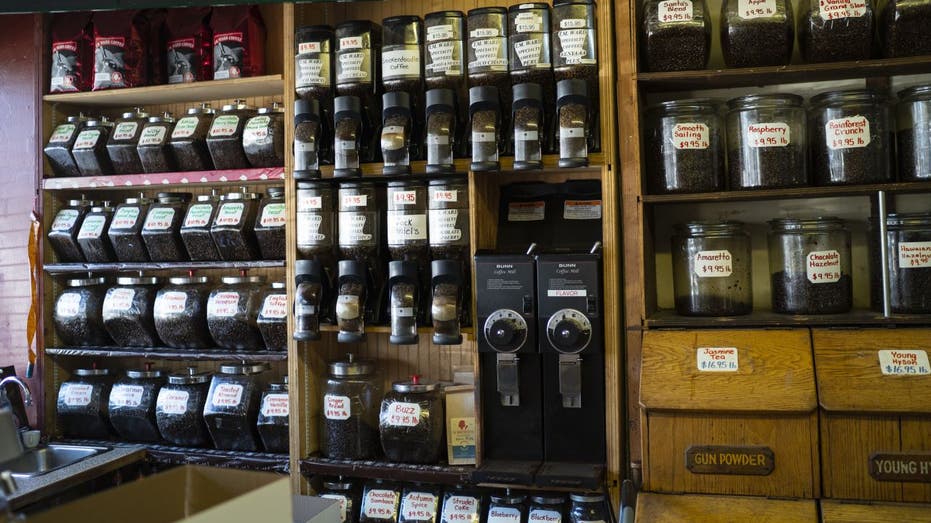<!–>
DeCicco & Sons CEO John DeCicco Jr. details the impact of the port worker strike on the company as he prepares for a fruit shortage.
The ongoing strike by unionized dockworkers at East and Gulf Coast ports has ground to a halt the unloading of imported coffee shipments, setting up a supply squeeze for coffee drinkers in the U.S. – the world’s largest coffee-drinking nation.
Americans purchased about 164.2 billion six-ounce cups of coffee from Oct. 2022 to Sept. 2023, which equates to about 3.26 billion pounds of coffee, according to U.S. Department of Agriculture (USDA) data used in an analysis by USAFacts.
Most of that is imported, as the U.S. produced just 11.5 million pounds of coffee in Hawaii during the 2022-23 season, meaning the U.S. consumed about 282 times as much coffee as it produced, per the report.
A USDA report on the coffee market for the 2023-24 season found the countries that export the most coffee to the U.S. are Brazil (27%) and Colombia (19%). Due to their proximity to those countries, East and Gulf Coast ports are key destinations for America’s coffee imports.
US PORT STRIKE: GM, WALMART, LG TOP IMPORTERS AT IMPACTED PORTS
A significant portion of the coffee consumed in the US is imported from overseas through East and Gulf Coast ports. (Photo by Robert Nickelsberg/Getty Images / Getty Images)
“The ports impacted by this strike are vital to coffee, and we urge everyone involved to work constructively to avoid further disruptions,” National Coffee Association CEO William “Bill” Murray told FOX Business in a statement.
“Failing to do so will considerably harm the two-thirds of Americans who drink coffee each day and the 2.2 million hard-working people working throughout America’s coffee supply chain,” he added.
DOCKWORKERS UNION’S CALLS FOR AUTOMATION RESTRICTIONS AT US PORTS COULD UNDERCUT COMPETITIVENESS

Dockworkers from the International Longshoremen’s Association are on strike at East and Gulf Coast ports, seeking higher wages and protection from automation. (Photo by Andrew Lichtenstein/Corbis via Getty Images / Getty Images)
Reuters reported that one unnamed coffee trader at one of the largest U.S. coffee importers, who requested anonymity because he wasn’t authorized to speak publicly on the subject, said that, “We have some 40 containers waiting to be moved.”
“The owners of the containers have already told us they will charge additional fees if the boxes take longer than normal to be returned,” the trader added. He also noted that there may be a “supply squeeze” in some regions of the U.S. due to the strike.
BUSINESS GROUPS CALL ON BIDEN TO INTERVENE IN PORT STRIKE

The dockworkers strike has brought most activity at East and Gulf Coast ports to a standstill. (MARK FELIX/AFP via Getty Images / Getty Images)
The strike and supply disruption comes as U.S. coffee inventories have been at historically low levels, as importers have opted against maintaining high inventory levels as a means of reducing storage costs due to high interest rates.
Coffee bean prices hit multi-year highs last week due to limited supply, and delays in the delivery of more coffee imports to U.S. roasters and coffee chains could cause those costs to rise even further for companies and consumers.
GET FOX BUSINESS ON THE GO BY CLICKING HERE
“We source coffee from 35 different countries,” Will Ford, president of operations at Arkansas-based Westrock Coffee Company, told Reuters. “If this [strike] goes on for a long time, everybody will be impacted.”
Reuters contributed to this report.
–>




